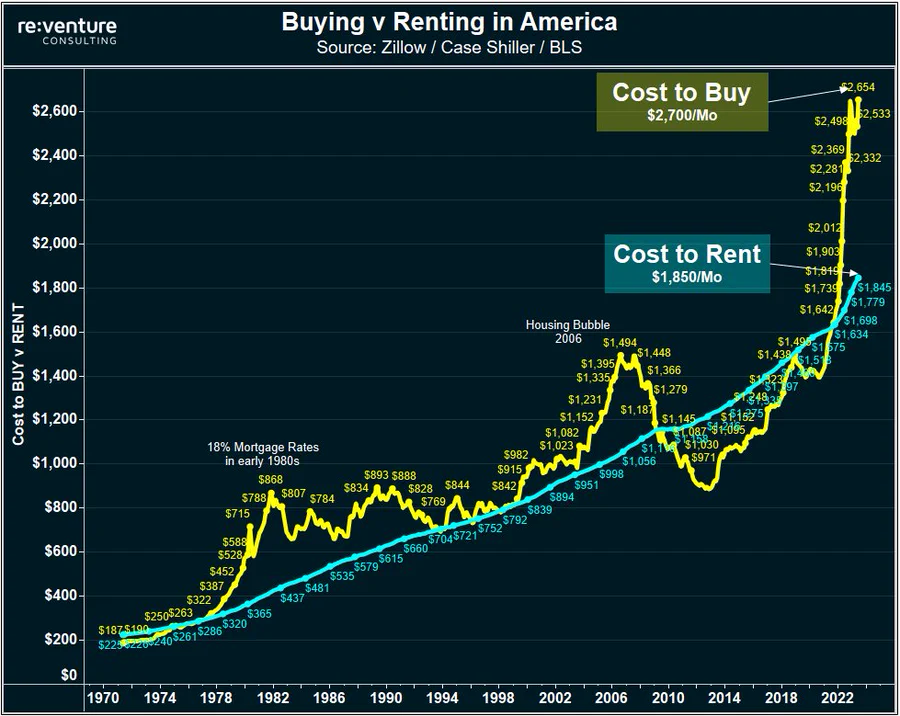After a couple of days of full flights, full resorts, establishments that seem to still face some staffing issues and seeing plenty of cranes in the sky, it's hard to to see the coming recession in real life. Maybe the bond market sees the same as yields remain up on the week. On the day the 2Y is down 3bps to 4.92% and the 10Y is down 3bps to 4.19%. Across the pond, UK inflation fell to 6.8% with core at 6.9% and wages rising. All the talk this week has been about China and their real estate and shadow bank concerns. Speaking of Asia, remember when we were all worried that the U.S. was becoming Japan, mired in secular stagnation despite (or because of) high public debt? Instead what if the U.S. is turning into the Japan on Tuesday that posted a 6.0% annualized GDP for Q2? Well the Atlanta Fed's GDP now is at 5.0% for 3Q2023 in the U.S., maybe the U.S. is turning into Japan after all, just in the exact opposite way that everyone expected. On the day ahead it's Housing Starts and Building permits a 830am ET and FOMC Minutes at 2pm ET.
TTOD: Rich Men North of Richmond by Oliver Anthony tapped into the zeitgeist of the silent majority
TTOD: I don't think The Song was astroturfed, but I do now wonder if it was lip-synced. I'm not a sound designer but...
TTOD: I'm told songwriters from @AEI @Cato and @AFPhq gathered at George Mason this weekened to rebut the declensionism and grievance-onomics of @AintGottaDollar 's Rich Men from Richmond. The result is a powerful new ballad for the Old Right: "Every Feller's a Rockafeller"
Your revealed preference, is to work all day
Your marginal product, determines your pay
And thanks to government aid, like the ol’ ACA
Your standard-uh-livin’ just keeps risin’ away....
TTOD: GDP now forecasting tracking 5.0% GDP growth in Q3.If you exclude 2020 their forecasts at this stage have a standard deviation of ~1.5pp. But their forecasts at this stage are also biased upwards by ~1pp.So all in roughly a 70% chance growth is between 2.5% and 5.5% in Q3.
TTOD: ERC pumping $30 billion a monthly certainly helps...the well-heeled.
TTOD: Future historians will marvel at the amount of time economists in the 2020s devoted to calculating various measures of inflation. They will also wonder why such a bad analogy as landing a plane was used to explain the effects of monetary policy to the public.
TTOD: Reading this from @R2Rsquared ; I'm happy to grant that we should ditch the notion of the Phillips Curve as a causal-story tool for setting unemployment to reach target inflation, but then what is the path from interest rate policy to lower near-term measured inflation?
TTOD: When the CB raises nominal interest rates, agents want to save more in nominal vehicles as opposed to real ones. The relative value of nominal vs real must rise. Inflation must fall. This happens as: (i) banks want to deposit more at the CB rather than lend to projects, (ii) investors and firms prefer to park resources in nominal accounts rather than invest them in real projects, (iii) households prefer nominal savings instead of buying durables or others. All of these--less lending, less investment, less spending--often will raise unemployment, but that is a side effect, not the causal channel. Usually u will rise when i rises (and I expect it will soon), but this is not necessary for pi to fall.
TTOD: 2. He thinks of the price level very much as an asset price I think of the price level as the result of millions of uncoordinated nominal price decisions by individual price setters, who do not care about the price level, but care about their relative price. 3. In my way of thinking, the only way to get inflation down (leaving out happy commodity price shocks, etc) is to induce price/wage setters to want to decrease their relative price/wage, leading to a general adjustment of nominal prices, and a slowing of inflation. 3. In my way of thinking, the only way to get inflation down (leaving out happy commodity price shocks, etc) is to induce price/wage setters to want to decrease their relative price/wage, leading to a general adjustment of nominal prices, and a slowing of inflation.
TTOD: Must read blog (and series of blogs!) by @JohnHCochrane on what we really know on the impact of interest rates on inflation. Summary: very little. A tiny thread on identification explaining the last blog with an analogy, specially for non-economists.
TTOD: aight imma need you to see my man flacco on the 5th floor. if you can't get to the 5th floor, say you're muslim and you want to attend "jumah". if that dont work, go to medical like 5 times and ask about flacco. tall flacco from the bronx. there are 50 flaccos. next, when you approach flacco you must make a bird noise. do not make direct eye contact and make sure it is a cooing type of bird, not a chirping type of bird, but it shouldnt be 100% coo. if he doesnt acknowledge you, quickly remove yourself. if he nods his head up slowly, you may say "hunnit" send you. i, martin shkreli, am "hunnit". that is a long story you need not concern yourself with at this stage. flacco will give you the rest of what you need to know.
